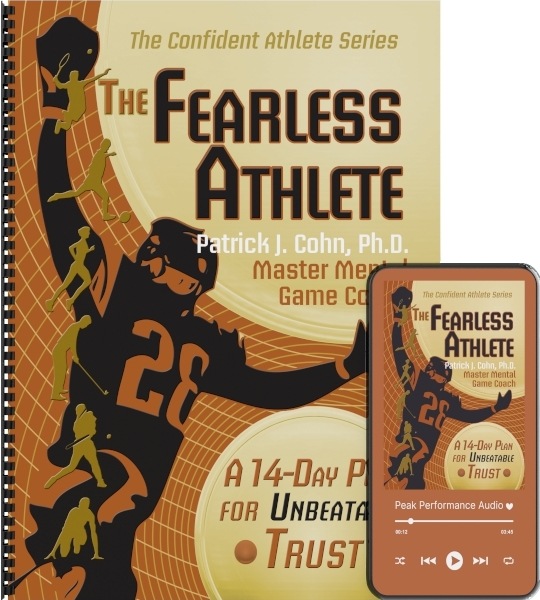
Over Thinking During Competition
Does being a smart athlete help you (or your players) perform better in competition?
What do I mean by smart? You can consider two types of smarts for athletes: (1) Ability to critically analyze, and (2) game intelligence.
You want #2 smarts: the ability to understand your sport and apply tactics and strategies to be an intelligent player, such as to know what play to run and when.
As for #1, the ability to critically analyze can be both helpful and harmful to your performance. The good news, smart athletes can excel in learning and practice situations.
The bad news, smart athletes can over think or over analyze in competition if they don’t quiet this part of their minds.
Here a recent question from a sports parent that highlights the issue:
“My daughter, Lauren, is about to start college athletics in a few weeks. Her major problem: She is incredibly smart and overthinks a lot. One well-meaning comment from a fan or coach will get her thinking of mechanics or overanalyzing again in the middle of the game. Therefore in practice she does amazing, but put into the game situation she starts the over analysis. How can she stop overthinking her game?”
Why do smart athletes sabotage their performance by over thinking?
First, this is a characteristic we see with athletes who have some perfectionist tendencies. They think trying to be perfect is the best way to perform well.
Second, if this sounds like you, you try super hard to perform well. Trying hard includes thinking too much about how to perform. You don’t trust your athletic ability honed through practice.
Many of the athletes I work with are too serious about competition, “This is important now, make sure you do everything right and not make any mistakes.”
4 tips to quiet the mind in competition:
1. Remind yourself or your athletes that practice is complete at the start of competition. Rely on what you have already learned in practice. Stop “practicing” your mechanics in competition.
2. Adopt a functional mindset instead a trying to be perfect. This is supper important for perfectionists that think they have to be perfect in competition. A functional mindset is what tennis coach, Brad Gilbert, calls winning ugly—Just get the job done and don’t worry about how it looks or feels.
3. Avoid “fixing” what may not be broken. Instead of analyzing what went wrong on the last mistake and how to fix it—during competition—move on to the next play, move, or shot and trust your ability.
4. See the ball—hit the ball. We use this saying for softball and baseball players who tend to overthink. React to the input from your eyes. Simplify the number of cues you need to perform. Don’t think about every single tip your coach has told you.
If you enjoy reading my mental game tips, please forward this email to others athletes and coaches who would appreciate it.
The top CD program for trusting your skills in competition is The Fearless Athlete.
Related Sports Psychology Articles
- How Over Thinking Sabotages Athletes’ Performance
- How to Stop Overthinking in Competition
- How to Overcome “What-If” Thinking
*Subscribe to The Sports Psychology Podcast on iTunes
*Subscribe to The Sports Psychology Podcast on Spotify
Download a free sports psychology report to improve your mental game!
Learn more about our one-on-one mental game coaching.
The Fearless Athlete

For the last two decades, I’ve been working with athletes and helping them optimize their physical ability by teaching them the secrets of top performing athletes. Now, you too can learn how to regain that child-like fearless attitude.
Mental toughness is what separates the winner from the loser in any competition. Champion athletes train hard in practice, perform without fear in competition, and trust their skills in crunch-time.
The Fearless Athlete program is ideal for any athlete that wants to overcome fear of failure and uncover inhibiting perfectionistic traits; or for any coach or parent who wants to teach athletes to perform with trust and freedom in competition.

